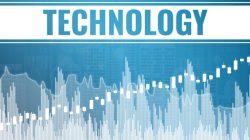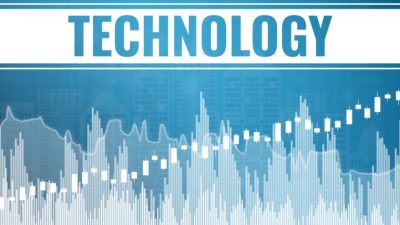Investing can be a powerful tool to grow your wealth, but it’s essential to understand the different options available. Two of the most popular investment vehicles are Exchange-Traded Funds (ETFs) and individual stocks. While both allow you to participate in the financial markets, they have distinct characteristics that make them suitable for different types of investors. This article will explore the differences between ETFs and stocks, helping you determine which option aligns better with your financial goals.
Understanding ETFs and Stocks
What is an ETF?
An ETF is a type of investment fund that holds a collection of assets, such as stocks, bonds, or commodities, and trades on a stock exchange like a single stock. ETFs are designed to track a specific index, sector, or asset class, providing investors with a diversified portfolio in one trade. When you buy shares of an ETF, you’re essentially owning a fraction of all the underlying assets within the fund.
What is a Stock?
A stock represents ownership in a specific company. When you purchase a stock, you become a shareholder, meaning you own a portion of that company’s assets and earnings. Stocks are traded on stock exchanges, and their prices fluctuate based on supply and demand, company performance, and broader market conditions.
Similarities Between ETFs and Stocks
-
Transparency
Both ETFs and individual stocks offer transparency. ETFs typically disclose their holdings daily, allowing investors to know exactly what they’re invested in. Similarly, when you hold individual stocks, you know which company you own a share of. -
Diverse Investment Options
Investors can use both ETFs and stocks to gain exposure to various market segments, including different geographic regions, industries, and market capitalizations. -
Trading on Exchanges
ETFs and individual stocks are bought and sold on stock exchanges, offering liquidity and the ability to execute trades throughout the trading day. Prices for both reflect current market conditions. -
Dividend Payments
Many companies pay dividends to shareholders, and ETFs may also receive dividends from the stocks they hold. These dividends are then distributed to ETF investors.
Key Differences Between ETFs and Stocks
-
Diversification and Risk
ETFs provide built-in diversification by spreading investments across multiple assets, reducing the risk associated with holding a single stock. In contrast, individual stocks expose investors to higher risk since the performance of one company can significantly impact the value of the investment. -
Costs and Fees
ETFs generally have lower expense ratios compared to actively managed mutual funds, although they still incur fees. Individual stocks may involve transaction costs, though many brokers now offer commission-free trading. -
Research and Management
ETFs are professionally managed, with fund managers making decisions on behalf of investors. This means less research is required from individual investors. On the other hand, investing in individual stocks requires more in-depth research into the company’s financials, industry trends, and competitive landscape. -
Potential Returns
ETFs aim to match the performance of a specific index or benchmark, rather than outperform it. While this can lead to consistent returns, it may not offer the same potential for high growth as individual stocks, which can sometimes deliver exceptional returns if the company performs well.
When to Choose ETFs Over Stocks
ETFs are often a better choice for investors who:
- Lack expertise in specific industries and prefer a more hands-off approach to investing.
- Seek broad market exposure without the need to pick individual stocks.
- Want to minimize risk through diversification, especially in sectors with stable returns.
- Are new to investing and want a simpler way to build a diversified portfolio.
For example, the utilities and consumer staples sectors tend to have narrow return dispersions, making ETFs a more suitable option. Additionally, ETFs can be beneficial in volatile sectors like biotechnology, where the success of a single company can be uncertain.
When to Choose Stocks Over ETFs
Stocks may be preferable for investors who:
- Have specialized knowledge about a particular industry or company and believe they can identify undervalued opportunities.
- Seek higher potential returns by investing in companies with strong growth prospects.
- Prefer active management of their portfolio, with the ability to make real-time adjustments based on market conditions.
For instance, the retail sector often has wide return dispersions, allowing skilled investors to pick stocks that outperform the market. If you have insight into a specific company’s operations or future performance, investing directly in its stock could yield higher returns.
Considerations for Your Investment Strategy
When deciding between ETFs and stocks, consider the following factors:
- Risk tolerance: ETFs are generally less risky due to diversification, while individual stocks can be more volatile.
- Investment goals: Are you looking for long-term growth, income, or a mix of both?
- Time and expertise: Do you have the time and knowledge to research individual stocks, or would you prefer a more passive approach?
- Market conditions: In uncertain markets, ETFs may offer greater stability, while in favorable conditions, individual stocks might provide higher returns.
Conclusion
The choice between ETFs and stocks depends on your financial goals, risk tolerance, and investment strategy. ETFs offer convenience, diversification, and professional management, making them ideal for a wide range of investors. Stocks, on the other hand, provide the potential for higher returns and more control, but require more research and carry higher risk. By understanding the differences and considering your personal circumstances, you can make an informed decision that aligns with your investment objectives.












